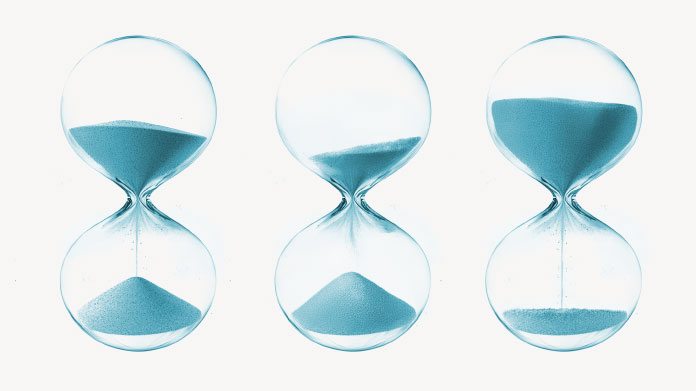Can you still take supplements once they are past their expiry date?
Does a dietary supplement past its expiry date necessarily have to be thrown away? Read on for the answers.

BBD, UBD – what do these mean?
There will definitely be a date marked on the label of your supplement. But do you know what it means?
It is normally a best before date (BBD), indicating the limit of its period of optimum efficacy . Up to this date, the product will still retain all its physical, organoleptic (eg, taste, color, odor, and feel), and biochemical properties.
So it is not, strictly speaking, a use by date (UBD) which is the date beyond which a product should not be consumed to avoid any health risk.
A supplement a few days past its expiry date is not a problem
If your supplement expired just a few days or weeks ago, there is no need to put it straight in the bin. As explained, the date indicated does not relate to its safety. At worst, your product will have a reduced effect but it will not pose a risk to your health: generally speaking, supplements (except probiotics) can actually be taken as much as 3-6 months after their BBD.
Nonetheless, it pays to remain vigilant. As with foodstuffs, trust your instincts when it comes to spotting any unwelcome microbial growth. If you see any sign of mold on your vitamins or notice an odd smell coming from the jar or pot – chuck it!
Factors affecting the preservation of supplements
A dietary supplement’s stability will vary somewhat depending on its composition or delivery method. Various parameters intrinsic to the product may require a greater degree of compliance with the date stipulated by the manufacturer:
- the combining of active principles: these do not always change at the same rate over time, or they can change more quickly when used synergistically;
- the presence ofexcipients ;
- the galenic form, with liquid supplements being more vulnerable (1-2);
- the nature of the container and how impermeable it is to external agents: transparency of the jar, how well-sealed it is …
Substances which are particularly vulnerable
Over time, certain vitamins degrade faster than others and lose their potency. Therefore, once the expiry date has passed, it is best to replace them quickly to ensure their health benefits remain optimal.
Vitamin C (present in Triple C, an excellent, synergistic trio of ascorbic acid, calcium ascorbate and ascorbic palmitate) and vitamin B1 or thiamine (present in Benfotiamine, a highly-available source of thiamine) are particularly subject to deliquescence: by dint of opening the container every day, they partially dissolve on exposure to humidity. So it makes sense to keep them in a cool, dry place! (3)
Another delicate substance is vitamin K (the ingredient in Complete K, a cutting-edge complex combining the 3 best forms of vitamin K).
As mentioned above, take extra care with microbiotic supplements (such as Colon Friendly, Lactobacillus reuteri and Derma Relief, all of which provide invaluable support to gut flora) which are live organisms: while they keep well in the fridge, it’s best to get rid of them once they’ve passed their expiry date (4).
Expectant mothers: respect the expiry date!
When it comes to pregnancy, don’t take any chances! When a health professional advises a pregnant woman to take supplements, it’s because it‘s necessary to meet herbasic needs and those of her fetus (5).
We’re talking in particular about folate (vitamin B9) which supports maternal tissue growth during pregnancy(6). In most of Europe, supplementation is routinely recommended before conception and during the first weeks of pregnancy. In this particular case, reduced efficacy is not an option: if it’s expired, throw it away!
Expired supplements: what should you do with them?
If you’re tempted to take them back to the pharmacy, remember that dietary supplements are not drugs: they, like personal care products, will not be collected.
You can therefore throw them away… making sure you follow these rules: the supplements themselves go in with the household waste (usually a black bin), while the plastic containers and cardboard packaging go into their respective recycling bins (usually red for plastic and blue for cardboard).
Avoid pouring any liquid supplements down the drain to protect drinking water supplies. Instead, follow the advice of the Environmental Protection Agency (EPA) to dispose of any such out-of-date vitamins, minerals, and the like, in the proper manner:
- Empty the supplements into a disposable bag, mixing them with an inedible substance to prevent any accidental ingestion by animals or over-curious children: cat litter, coffee grounds …;
- thoroughly seal the bag;
- put it in the bin.
Final analysis: throw them or not?
Although most supplements can be taken beyond their expiry date without any risk, they will undoubtedly not deliver their maximum potential. And if you’ve chosen to take a supplement, it’s primarily because you want to obtain its benefits: it’s therefore highly advisable to go through your supplements regularly and replace any that are well past their date with new ones. Spring cleaning should also apply to supplements from time to time!
References
- Hiatt AN, Taylor LS, Mauer LJ. Influence of simultaneous variations in temperature and relative humidity on chemical stability of two vitamin C forms and implications for shelf life models. J Agric Food Chem. 2010 Mar 24;58(6):3532-40. doi: 10.1021/jf903342f. PMID: 20163110.
- Temova Rakuša Ž, Pišlar M, Kristl A, Roškar R. Comprehensive Stability Study of Vitamin D3 in Aqueous Solutions and Liquid Commercial Products. Pharmaceutics. 2021 Apr 25;13(5):617. doi: 10.3390/pharmaceutics13050617. PMID: 33922975; PMCID: PMC8147103.
- Hiatt AN, Ferruzzi MG, Taylor LS, Mauer LJ. Impact of deliquescence on the chemical stability of vitamins B1, B6, and C in powder blends. J Agric Food Chem. 2008 Aug 13;56(15):6471-9. doi: 10.1021/jf800709f. Epub 2008 Jul 2. PMID: 18593179.
- Govender M, Choonara YE, Kumar P, du Toit LC, van Vuuren S, Pillay V. A review of the advancements in probiotic delivery: Conventional vs. non-conventional formulations for intestinal flora supplementation. AAPS PharmSciTech. 2014;15(1):29-43. doi:10.1208/s12249-013-0027-1
- Oh C, Keats EC, Bhutta ZA. Vitamin and Mineral Supplementation During Pregnancy on Maternal, Birth, Child Health and Development Outcomes in Low- and Middle-Income Countries: A Systematic Review and Meta-Analysis. Nutrients. 2020;12(2):491. Published 2020 Feb 14. doi:10.3390/nu12020491
- Greenberg JA, Bell SJ, Guan Y, Yu YH. Folic Acid supplementation and pregnancy: more than just neural tube defect prevention. Rev Obstet Gynecol. 2011;4(2):52-59.
Keywords
2 Days
repeat customer
recommended by my doctor. easy to create an account. Discounts and specials are appreciated. packaging and delivery is dependable. Capsules easy to digest. I've had some some capsules and tablets that are broken inside their bottles.
Kokee
7 Days
Order was shipped on time and packaged…Wonderful Jobs!
Order was shipped on time and packaged excellently.
DMHoge
13 Days
great products and prices
great products and prices
Marie
19 Days
Easy to navigate site
Easy to navigate site, had what I was searching for, good price. easy order-check out
James Tucker
25 Days
My skin is clearing up nicely!
Pretty good for my skin so far.
Christian
27 Days
The new packaging is excellent
The new packaging is excellent - finally! No more squashed boxes and torn envelopes.
GORAN
28 Days
Great Product
Great Product
Larry Garrett
33 Days
Quick shipping
Quick shipping; good price. No issues!
Mary McCarty
34 Days
Thr product is very good and is helping…
Thr product is very good and is helping me on my health. Then is always on time
LUGO Luz
37 Days
Buying was fine
Buying was fine. I had problems with the website not recognizing my login info, and had to call to get it fixed. Other than that, everything was good.
David S. Clark
37 Days
Your super maca and super ginseng are…phenomenal
Your super maca and super ginseng are phenomenal supplements that compliment each other when taking them together. Fantastic feeling of well-being and lots of mid day energy without the crash.
Keith Mason
40 Days
I have had amazing results with every…
I have had amazing results with every supplement I've purchased. I am extremely satisfied with this company
kirstin Torres
40 Days
Fine products
Fine products . They are on the leading edge of online supplements. The only issue -so far-is they sometime run out of subscription items.
Jason Argos
42 Days
The ordering process is very user…
The ordering process is very user friendly and the products always come in a timely manner.
CARTER Rhonda
43 Days
The price for Dr
The price for Dr. Pero's AC-11 is reasonable and in line with his views. (my former colleague). Keep it pure.
CAMPBELL Clayton




